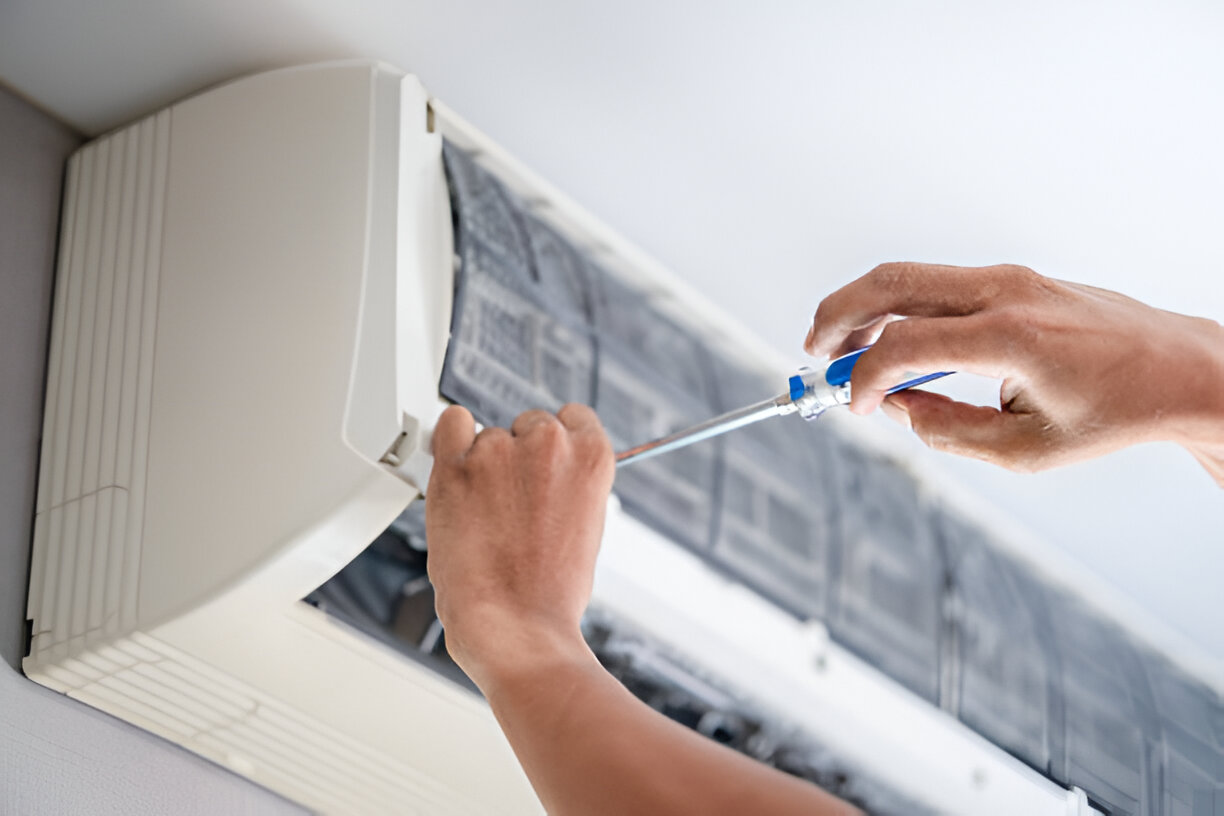HVAC units often malfunction on the hottest days of the year. Nobody wants to come home and find that their AC isn’t working correctly. The system may be blowing warm air or making unusual noises. At times, the system will not turn on at all. When a person discovers their AC is not working, they may immediately reach for the phone to call an HVAC technician.
Before doing so, a person should consider all options for malfunctioning HVAC units. They may be able to identify and resolve the issue themselves. Not only will this save them time and money, but the house will cool down more rapidly. What should a person look for when their system begins malfunctioning?
The System Won’t Turn On
When the AC won’t turn on, a person should first check their thermostat and power settings. Ensure the thermostat is set for cooling and that the temperature is below the current room temperature. If the thermostat screen is not displaying anything, it is likely time to change the batteries. When the problem doesn’t lie with the thermostat, check the circuit breaker to see if it has tripped. Reset the breaker to determine if that resolves the issue. If the breaker immediately trips again, call a professional. Many people don’t realize that their AC system has a power switch located near their indoor air handler and their outdoor condenser unit. Make sure the switch is turned on in both locations.
Warm Air Is Coming From the Unit
Air conditioners are designed to blow cold air. When the air leaving the vents in the home is warm, something is wrong. The thermostat may be incorrectly set, or there may be a clogged air filter that is restricting normal airflow. Low refrigerant levels can also lead to this issue.
Check the thermostat settings to ensure it is set to cool the home and the fan is set to auto. When the fan is on, it blows air continuously. If the system isn’t cooling the house, warm air may escape the vents. Dirty and clogged air filters can also lead to warm air coming from the system because the airflow is restricted. Replace the filter and change it every one to three months to prevent similar issues. However, the problem could be a low refrigerant leak. Listen for hissing noises and check for ice buildup on the refrigerant line. Both are signs that there is a leak within the system, and a technician must be called.
Reduced Airflow
When the airflow coming from the vents is diminished, this forces the system to work harder, leading to increased wear and tear on the internal components. The system may overheat, and the compressor may sustain damage. Examine the air filter and replace it if it is dirty or clogged to improve airflow. Inspect the ductwork for possible blockages and ensure all connections are secure. Leaks in the ductwork can lead to reduced airflow. Work with the HVAC contractor to address these problems. A malfunctioning blower motor can also diminish the system’s performance, so contact an HVAC contractor to learn where the problem lies and how best to address it. Finally, ensure all supply and return vents in the home are fully open and nothing is blocking them.
If the AC is making strange noises, leaking water, or continuously cycling on and off, it is best to call a technician. The same holds when the evaporator coils are frozen. The technician will determine the underlying cause of these symptoms, so the problem can be addressed to allow the system to work correctly again.
When dealing with malfunctioning HVAC units, it’s crucial to choose a reliable service provider to ensure efficient repairs. One such option is Climatic Conditioning, known for their expertise in handling a variety of HVAC issues. Their team of professionals can diagnose and fix problems swiftly, ensuring your system is back up and running in no time. Whether it’s a minor repair or a major overhaul, having a trusted contractor can make all the difference in maintaining a comfortable indoor environment. Consider reaching out to them for a consultation to explore the best solutions tailored to your needs.
When dealing with HVAC issues, it’s crucial to consider all available options to ensure your system is running efficiently. For those experiencing problems with their heating systems, seeking professional assistance can make a significant difference. If you’re in the Charleston area, you might want to explore furnace repair charleston services to address any malfunctions promptly. Expert technicians can diagnose and fix issues, ensuring your home remains comfortable throughout the colder months. Regular maintenance and timely repairs not only extend the lifespan of your unit but also improve energy efficiency, ultimately saving you money on utility bills.





Leave a Reply